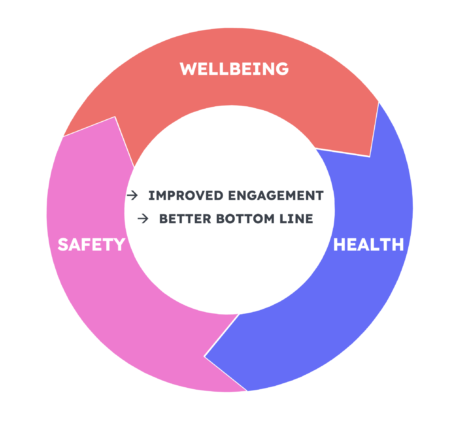Stress Awareness Month 2025: How Leaders Can Create Resilient Workplaces
- 1 April 2025
- Uncategorized
- Comments : 0
Workplace Wellbeing: Stress Awareness Month 2025
April is Stress Awareness Month, a time to recognise the impact of stress on individuals and organisations.
With workplace stress at an all-time high, leaders have a crucial role in fostering resilience, psychological safety, and wellbeing within their teams. This article explores practical strategies for reducing stress at work and effectively supporting employees.
The growing impact of workplace stress
The Health and Safety Executive (HSE) reports that stress, depression, or anxiety accounts for over 50% of all work-related ill health cases. High-stress levels affect productivity, retention, and overall job satisfaction, leading to burnout and increased absenteeism. As leaders, acknowledging and addressing stress is not just a moral responsibility — it’s a business imperative.
Key strategies for reducing workplace stress and boosting wellbeing
- Create a Culture of Psychological Safety
Employees need to feel safe to voice concerns without fear of judgment or repercussions. Encourage open conversations about workload, mental health, and work–life balance. - Train Leaders in Stress Management and Emotional Intelligence
Leadership development programmes focusing on self-awareness, active listening, and emotional intelligence equip managers to effectively support their teams. - Implement Flexible Work Policies
The right to request flexible working from day one (under 2024 UK employment law changes) highlights the growing need for adaptive work arrangements. Leaders should embrace flexibility where possible to reduce stress and improve work–life integration. - Encourage Regular Breaks and Energy Management
The Capacity Cup model and Energy Zones framework can help employees understand how to manage their energy levels throughout the day, preventing burnout and increasing focus. Little breaks taken often make a huge difference! - Offer Mental Health Support
Employee Assistance Programmes (EAPs), wellbeing champions, and internal support networks can provide employees with the help they need before stress escalates into long-term mental health issues.
The business case for wellbeing
Investing in stress reduction isn’t just about employee health — it’s about business performance. According to Deloitte, every £1 invested in workplace mental health returns £4.70 in reduced absenteeism, presenteeism, and staff turnover. Prioritising employee wellbeing leads to a more engaged, productive, and committed workforce.
That’s a 370% return on investment! Who can afford to turn that down?
How Safe and Well Together can help
At Safe and Well Together, we specialise in leadership development, wellbeing strategies, and workplace resilience training. Our tailored workshops equip leaders with the skills and tools to create healthier, more resilient workplaces.
Explore our Wellbeing & Mental Health Consulting Services to take action this Stress Awareness Month.
Final thoughts
Stress Awareness Month 2025 is an opportunity for leaders to reflect on their role in workplace wellbeing. By fostering a culture of psychological safety, providing resources, and leading by example, organisations can reduce stress, improve retention, and drive sustainable success.
Ready to take action?
Let’s explore how we can help your team build a stress-resilient workplace.
Helpful resources:





